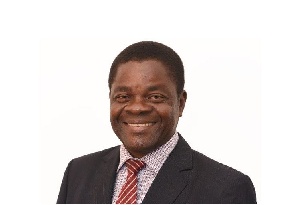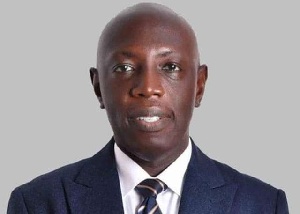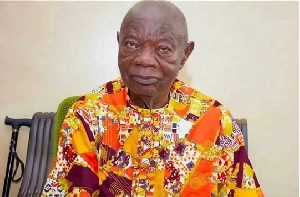- Home - News
- Elections 2024
- News Archive
- Crime & Punishment
- Politics
- Regional
- Editorial
- Health
- Ghanaians Abroad
- Tabloid
- Africa
- Religion
- Photo Archives
- Press Release
General News of Thursday, 22 May 2025
Source: www.ghanawebbers.com
'CJ should have gone to Judicial Council first not Supreme Court' - Kwaku Ansa-Asare
Kwaku Ansa-Asare, a former Director of the Ghana School of Law, has spoken out about the petition to remove Ghana’s Chief Justice. He believes the Chief Justice made a mistake by not consulting the Judicial Council first.
Ansa-Asare discussed this issue on JoyNews’ PM Express on May 21. He called the Chief Justice’s actions a misstep. He stated that the Judicial Council exists to guide Chief Justices in their conduct.
“If a Chief Justice faces a problem, she should seek counsel,” he said. “I don’t think that has happened.”
He argued that bypassing the Judicial Council and engaging in public disputes undermines accountability. “The actions of the Chief Justice and lawyers provoke the committee,” he noted.
Ansa-Asare feels that these actions could lead to unorthodox and unconstitutional outcomes. He believes politics has tainted the impeachment process, damaging public trust in the judiciary.
“The CJ removal process is now deeply political,” he lamented. “Issues of transparency and legality seem to oppose the Constitution.”
He emphasized that democracy must align with constitutionalism. “Article 125 states that citizen participation in justice is subject to the Constitution,” he explained.
He referenced Kofi Kumado's view that democracy differs from constitutionalism. Public officials, including judges and media practitioners, must remember their duty to uphold the Constitution.
“The Council of State helps the president behave properly,” he said. “Similarly, the Judicial Council should assist the Chief Justice.”
While Ansa-Asare did not judge the merits of the removal petition, he insisted it shouldn’t become political theater. “Constitution operators must remember they are subject to it,” he stated.
He highlighted that certain constitutional terms are binding and non-negotiable. “When it says ‘shall’, then it’s ‘shall’,” he pointed out regarding Article 125 of Ghana's 1992 Constitution.
For Ansa-Asare, this situation tests Ghana’s constitutional maturity. “The Constitution creates governance institutions to help those in office conduct themselves properly,” he concluded.











